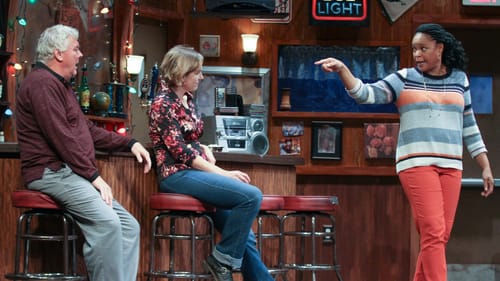Stay in the Loop
BSR publishes on a weekly schedule, with an email newsletter every Wednesday and Thursday morning. There’s no paywall, and subscribing is always free.
The stale smell of 'Sweat'
Philadelphia Theatre Company presents Lynn Nottage's 'Sweat'

Philadelphia Theatre Company (PTC) has much riding on Lynn Nottage’s Sweat, its first self-produced offering in nearly two years. The struggling company, plagued by debts and the specter of foreclosure in recent years, needs to re-establish itself after taking time off to reassess its place within the local landscape.
There has been and will continue to be much analysis of what producing artistic director Paige Price should do to carve out a unique corner in the crowded Philly theater ecosystem. Here’s mine: the last thing PTC needs is a return to the staid, middlebrow fare that came to define the company during Sara Garonzik’s four-decade tenure.
Regrettably, Sweat — seen here under Justin Emeka’s desultory direction and featuring a cast that often seems to be acting in different plays — feels very much like what I’ve come to expect. Timely, topical, and totally flat, it careens through a checklist of very important issues with little depth.
Unnatural naturalism
No one can deny Nottage’s talents as a writer, which have made her, among other things, the first woman to win the Pulitzer Prize for drama twice. (Full disclosure: BSR editor-in-chief Wendy Rosenfield served on the jury that nominated Sweat for the 2017 prize.) But Sweat, which concerns itself with the decline of the labor industry in America and the resulting consequences for its workers, too often comes across like an academic exercise.
Although Nottage embedded herself in Reading, Pennsylvania, for several weeks while researching the play, the result is more journalism rather than drama, with the characters spouting words and ideas you doubt they’d actually say.
Similarly, PTC’s production remains evenly on the surface. The handsome staging, with detailed sets and projections by Christopher Ash and costumes by LeVonne Lindsay, evokes the changing world of Reading in the year 2000, as NAFTA moved jobs from the Rust Belt to Mexico and Central America and those left behind did what they could to hold onto the dream of economic stability.
NAFTA gets namechecked as a predictable bogeyman, but like so much else, it’s fleetingly handled. Other hot-button issues on display include opioid addiction, nationalistic politics, and racial tensions. The workers at the steel-tubing plant — largely white and black locals whose families have toiled in the same jobs for generations — fear that immigrants who are willing to work for lower wages and skirt the union will take their place.
The underwritten character Oscar, played by the always reliable J Hernandez, basically exists to give physical manifestation to this tension. Though American-born, the patrons at the bar where he works as a busboy tag him as a suspicious Other.

"Working-class drag"
I don’t envy having to bring depth to Nottage’s assemblage of cardboard figures, but Emeka does little to tighten the ensemble. Character motivations seem largely missing from the performances, although some of the actors do affecting work. Damien J. Wallace is particularly heartbreaking as a man whose union lockout drives him to drug addiction. Walter DeShields impresses as a young plant worker with aspirations toward a teaching career.
Kittson O’Neill and Kimberly S. Fairbanks have their moments as a pair of lifelong friends torn asunder in a quest to land the same managerial job. Neither entirely convinces, though, in fairness, Nottage stops short of fully exploring the facets of their relationship. Still, both are better than Suli Holum’s working-class drag, braying in an accent that would make Roseanne Barr blush.
Sweat — which alternates settings between 2000 and 2008, and hinges on a revelation best left unspoiled — doesn’t offer much of a thesis on how the industry, the city, and the country in which it’s set got from there to here. It’s not successful as a character study since we get only the barest glimpse of what makes these people tick. So what is its point, exactly?
I’m not so sure. I always thought of Nottage as a daringly original writer, particularly in early works like Intimate Apparel and Fabulation, or The Re-Education of Undine. But Sweat seems like the kind of play that allows affluent audiences to feel like they’ve dealt with something weighty while remaining at an entirely safe distance. If that’s how PTC plans to reinvent itself, I’ll look elsewhere.
[Editor's note: My 2017 Pulitzer top picks were Taylor Mac's A 24-Decade History of Popular Music and/or Dominique Morisseau's Skeleton Crew, but the Pulitzer board gets final say on the award.]
What, When, Where
Sweat. By Lynn Nottage, Justin Emeka directed. Philadelphia Theatre Company. Through November 4, 2018, at the Suzanne Roberts Theatre, 480 S. Broad Street, Philadelphia. (215) 985-0420 or philadelphiatheatrecompany.org.
Sign up for our newsletter
All of the week's new articles, all in one place. Sign up for the free weekly BSR newsletters, and don't miss a conversation.

 Cameron Kelsall
Cameron Kelsall